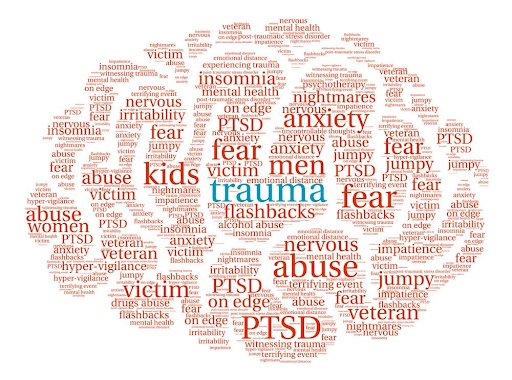Trauma can leave a lasting impact on an individual's mental and emotional well-being, affecting their daily functioning and overall quality of life. Whether stemming from a single event or prolonged exposure to distressing circumstances, trauma can manifest in various forms, including post-traumatic stress disorder (PTSD), anxiety, depression, and other psychological difficulties. In the journey towards healing, one therapeutic approach has emerged as particularly effective: Cognitive Behavioral Therapy or CBT for Trauma.
Understanding Trauma and its Effects
Before delving into the intricacies of CBT for trauma recovery, it's essential to grasp the nature of trauma itself. Trauma occurs when an individual experiences an overwhelming event or series of events that exceed their ability to cope. This could encompass incidents such as accidents, natural disasters, physical or emotional abuse, combat, or witnessing violence.
The aftermath of trauma often involves a range of distressing symptoms, including intrusive memories, flashbacks, nightmares, hypervigilance, avoidance behaviors, and negative alterations in mood and cognition. These symptoms can significantly disrupt daily life, relationships, and overall well-being, creating a profound sense of distress and dysfunction.
Introducing Cognitive Behavioral Therapy (CBT)
CBT is a structured, goal-oriented psychotherapy approach that aims to identify and modify maladaptive thought patterns and behaviors contributing to psychological distress. It operates on the premise that our thoughts, feelings, and behaviors are interconnected, and by changing one aspect, we can influence the others.
In the context of trauma, CBT for Trauma helps individuals understand how their thoughts and beliefs about the traumatic event(s) contribute to their emotional reactions and behaviors. By addressing and challenging these cognitive distortions, clients can gain a new perspective on their experiences and develop healthier coping mechanisms.
Key Components of CBT for Trauma Recovery
1. Psychoeducation:
Education about the nature of trauma, its effects on the brain and body, and common symptoms helps individuals normalize their experiences and reduce feelings of shame or isolation. Understanding the physiological and psychological mechanisms underlying trauma can empower clients to take an active role in their recovery journey.
2. Cognitive Restructuring:
CBT focuses on identifying and challenging negative or distorted thoughts related to the traumatic event(s). Through techniques such as cognitive restructuring, clients learn to replace irrational beliefs with more adaptive and realistic interpretations. This process can alleviate feelings of guilt, shame, and self-blame commonly associated with trauma.
3. Exposure Therapy:
Exposure therapy involves gradually and systematically confronting trauma-related triggers in a safe and controlled environment. By exposing individuals to reminders of the traumatic event(s) while teaching them effective coping strategies, exposure therapy helps reduce avoidance behaviors and desensitize emotional reactions over time.
4. Skills Building:
CBT equips clients with practical skills to manage distressing symptoms and regulate their emotions effectively. This may include relaxation techniques, mindfulness exercises, stress management strategies, and assertiveness training. By learning these skills, individuals gain greater autonomy and confidence in navigating challenging situations.
5. Behavioral Activation:
Encouraging engagement in meaningful and pleasurable activities can counteract symptoms of depression and apathy often experienced following trauma. Behavioral activation involves identifying and scheduling enjoyable pursuits that promote a sense of accomplishment and satisfaction, fostering a positive feedback loop of mood improvement.
The Efficacy of CBT in Trauma Recovery
Numerous studies have demonstrated the effectiveness of CBT in treating trauma-related conditions, particularly PTSD. Research indicates that CBT can lead to significant reductions in symptoms such as intrusive thoughts, avoidance behaviors, and emotional numbing, thereby enhancing overall functioning and quality of life.
Moreover, CBT interventions have been adapted and tailored to address the unique needs of diverse populations, including veterans, survivors of interpersonal violence, refugees, and individuals with comorbid mental health conditions. This versatility underscores the versatility and applicability of CBT across different cultural contexts and clinical presentations.
Challenges and Considerations
While CBT has shown considerable promise in trauma recovery, it's essential to acknowledge potential challenges and limitations. Not all individuals may respond equally to CBT, and some may require additional or alternative interventions to achieve meaningful progress. Moreover, therapeutic progress can be hindered by factors such as treatment dropout, lack of access to specialized care, and comorbid conditions.
Cultural sensitivity and awareness of socio-economic factors are also crucial considerations in delivering trauma-informed care. Therapists must recognize the impact of systemic inequalities, discrimination, and historical trauma on clients' experiences and tailor treatment approaches accordingly.
Conclusion: A Path to Healing
In conclusion, Cognitive Behavioral Therapy (CBT) offers a beacon of hope for individuals grappling with the aftermath of trauma. By addressing distorted thought patterns, confronting avoidance behaviors, and building practical coping skills, CBT empowers individuals to reclaim their lives and forge a path towards healing and resilience.
As we continue to unravel the complexities of trauma and refine therapeutic approaches, CBT for Trauma remains a cornerstone of trauma recovery, offering evidence-based strategies grounded in compassion, empathy, and empowerment. Through dedicated efforts to expand access, enhance cultural competence, and advance research, we can pave the way for a future where trauma survivors find solace, strength, and renewed purpose.
In the journey towards healing, every step forward, no matter how small, is a testament to the indomitable human spirit and the transformative power of resilience.


No comments yet